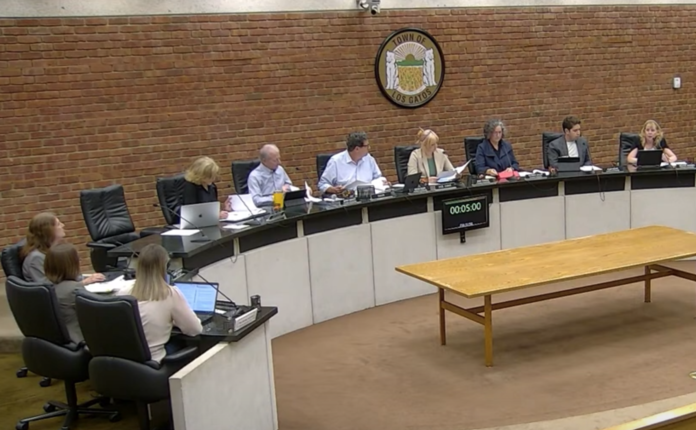
This article serves as a refutation of Jeffrey Blum’s article, “Community, not theory, should be at the heart of Town’s Planning,” which ran in last week’s edition.
Jeffrey Suzuki is a former Planning Commissioner, the current Vice Chair of the Complete Streets and Transportation Commission, and the president of the Los Gatos Anti-Racism Coalition. He’s writing here as a private citizen.
During my undergraduate and graduate years studying economics and data science, I spent substantial time with the fundamentals of game theory. Like Mr. Blum, I also had serious questions about the social significance of game theory, especially in politics.
Throughout my studies, I had felt that, despite its usefulness in modeling various phenomena in the real world like the international response to climate change and economic competition between companies, the assumptions used in these models always required some level of skepticism. It was often as if I was required to suspend my sense of disbelief before engaging with most game theory problems.
For that reason, I was intrigued by the ideas explored in Mr. Blum’s article. A critique that applies game theory to a subject matter like urban planning, with material consequences on a local level, is a fascinating concept.
However, criticizing the influence of an entire subfield of mathematics (i.e. game theory) requires, at the very least, an accurate description of it, to the extent that an 800-word article could. In this, Mr. Blum’s article is inaccurate to the extent that I felt an obligation to respond.
Mr. Blum states that his concern arises from reading the book Playing with Reality: How Games Have Shaped Our World by Kelly Clancy. As someone who has also read this book, I will give credit where credit is due: this book provides a fair amount of thought-provoking history on the influence of game theory in our cultural and political zeitgeist. But, it must be said, there is nothing in this book that would support the connections that Mr. Blum attempts to make between game theory and urban planning.
Game theory is used to mathematically represent how the decisions of different players interact in pursuit of maximizing their personal ‘Payout’
This naturally raises the question: what is game theory?
A Primer on Game Theory by Robert Gibbons provides a succinct description on the first page of its premise: “Game theory is the study of multiperson decision problems.” These multiperson decision problems are called “games” and each game has multiple decision-makers who we can call “players.”
In broad strokes, game theory is used to mathematically represent how the decisions of different players interact in the pursuit of maximizing their personal “payout.” This payout can be a representation of anything from happiness to wealth. By defining the number of players, the decisions available to each player, the amount of information available to each player, and the payouts depending on decisions made throughout a game, a theorist could simulate a wide variety of scenarios ranging from a six-person game of Texas Hold’em to the diplomacy between nation-states armed with nuclear weapons.
Game theory is ultimately the study of strategy. As Mr. Blum observes at the end of his article, it can be a useful tool to model behavior; game theory is prolific in academia across a wide variety of fields, including economics, international relations, political science, and even biology.
To criticize the use of game theory in urban planning, we should establish that it is actually being used. At its core, game theory is about representing player decisions— who are the players who are participating in the minds of urban planners? What do they think of the players’ decisions? What do they think are the players’ payouts given those decisions? None of these questions have explicit or implied answers in Mr. Blum’s article.
In my personal experience as a former Planning Commissioner and a current Vice Chair of the Complete Streets and Transportation Commission, I have not encountered a single commissioner, staff member, or council member who uses game theory to plan the town. Even if an urban planner wanted to apply game theory, the process and goals of urban planning fluctuate frequently in accordance with the desires of the state, market forces, representative bodies, and local residents, making it impractical to use.
Mr. Blum, however, provides a number of what he believes are examples of game theory in action, a few of which are provided below. I will provide some corrections along the way.
Blum: “While game theory offers insights in some areas, relying largely on its models for urban planning can lead to policies that neglect a community’s character—and the well-being of its residents. As a mediator seeking a win-win result (not a zero-sum one), I hope our leaders will avoid using game theory in town planning.”
Correction: This overlooks the existence of “cooperative games” in game theory, which do allow for win-win outcomes. Game theory is not inherently adversarial in the way that Mr. Blum suggests. To the contrary, it can serve as an educational tool to illustrate the benefits of cooperation over selfish behavior.
Blum: “These models, designed for scenarios with well-defined goals and perfect information, often fail to capture the realities of human behavior and community dynamics.”
Correction: There is a genre of “incomplete information games” that models behaviors under uncertainty, aligning with the realities Mr. Blum describes.
Blum: “Players have clear goals and perfect information, and they always act in self-interest. However, real-world decision-making rarely aligns with these assumptions. People have diverse (and often conflicting) priorities.”
Correction: The fact that people often have diverse and conflicting priorities is one of the central considerations of game theory—many, if not most, games, reflect this fact.
Due to space constraints, I cannot address every misapplication of game theory in Mr. Blum’s article. But there are strong arguments that game theory has been misapplied before, especially in the field of political science. However, I have not seen, nor do I expect to see, urban planners discussing payout matrices or decision trees when they make their urban design choices.
Game theory has taken on, at times, a mythical reputation. It is our responsibility as truth-seekers to demystify and analyze all things theoretical while continuing to develop and explore their appropriate and inappropriate uses.









